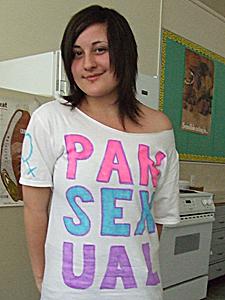Student safety, diversity and the need for anti-homophobia curriculum in BC primary and secondary schools were all hot topics at the 2008 Pride in Education conference held Oct 24 in Vancouver.
“Student safety and visibility in a positive way in the curriculum are key messages that we need to advocate over and over again,” says gay education activist James Chamberlain, now head of the BC Teachers Federation. “Homophobia and transphobia affect many students. That message needs to be said loud and clear.”
More than 100 participants —including educators from schools as far away as Nelson and Prince George — took part in the conference held at Sir Charles Tupper Secondary in East Vancouver.
Chamberlain, who hosted a workshop, told participants that while incorporating anti-homophobic and anti-heterosexist classroom lessons is crucial to the safety of queer and questioning students, it is not an easy undertaking.
“I’ve had colleagues challenge me. I’ve had administrators challenge me and I’ve had superintendents challenge me, and my message always stays the same: it’s about inclusion. Is there opposition to what we do? Yes. Is it insurmountable? No!”
The conference came just weeks after Abbotsford students protested their school board’s decision to cancel a course designed to teach secondary students about diversity. Advocates for the course say Abbotsford parents were concerned with the course’s outlined curriculum. The school board said further examination would be needed before it would allow Social Justice 12 in its schools.
But Ruth Merrick, a counsellor at MW Mouat Secondary, says despite the course’s cancellation, her school will continue to address the issue of homophobia in classrooms. According to Merrick, teaching anti-homophobia curriculum through pre-existing courses that highlight the subject of diversity isn’t breaking any rules.
While educators at the conference agreed that courses in anti-homophobia need to be a greater part of the BC curriculum, some also said that students are not the only ones who need sensitivity training.
“It’s the parents that are having the problem,” says Loretta Hughes, director of the Fraser Valley drop-in centre for queer youth. “The kids are not afraid to take the course; they are interested in the course.”
“I love studying gender and orientation,” says Chantell Gregg, a Grade 11 student at Abbotsford Collegiate. “Knowing more about certain subjects —even touchy ones like homosexuality or even just sexuality —is important for us to understand each other and get along with each other.”
Gregg says she was so disgusted that her district decided to cancel Social Justice 12 that she started a Facebook group inviting other youth and adults to support her mission to start an annual gay Pride parade in Abbotsford. While it’s likely the parade won’t take place until next year, Gregg says further plans to discuss the event with the city are in the works.
Ryan Thom, who heads the Gay-Straight Alliance (GSA) at Vancouver’s Sir Winston Churchill Secondary, says what queer youth need most is a space in their schools where they can feel at home. “I learned that schools without any structure in place to help youth who are feeling different —youth who are outside the realm of ‘normal’ —can be tough.”
While many Vancouver schools now have GSAs, reports of unsafe schools still surface.
“I had things thrown at me and people spit at me. It wasn’t a safe place to be,” says Saoirse Sankey. Until recently, the queer 16-year-old attended Britannia Secondary School in Vancouver’s Eastside where she alleges she endured daily physical and verbal abuse from students because of her sexual orientation.
Conference organizer Steve Mulligan, who is the Vancouver School Board’s anti-homophobia consultant, agrees that more must be done to eliminate homophobia in BC schools.
“The Ministry has made an effort, but they haven’t really followed through. The Ministry needs to change the prescribed learning outcomes,” Mulligan suggests, pointing to the need for more curriculum change.
A ministerial order under the BC safe schools legislation passed last year states in part that school boards must ensure they have codes of conduct that contain “one or more statements that address the prohibited grounds of discrimination set out in the BC Human Rights Code.”
BC education minister Shirley Bond told Xtra West in September that the safe schools legislation “has helped ensure that all boards of education encourage and enforce standards for appropriate behavior in their schools.”
Last month a random check of school districts showed they are in various stages of code of conduct revision.
But Mulligan says eradicating homophobia in schools is a multi-layered task. Amending the school districts’ codes of conduct to explicitly prohibit discrimination on the basis of sexual orientation needs to occur along with educating people more about diversity, he says.
“By passing legislation you can only accomplish so much. You won’t change attitudes unless it’s accompanied by awareness,” he says.

 Why you can trust Xtra
Why you can trust Xtra


